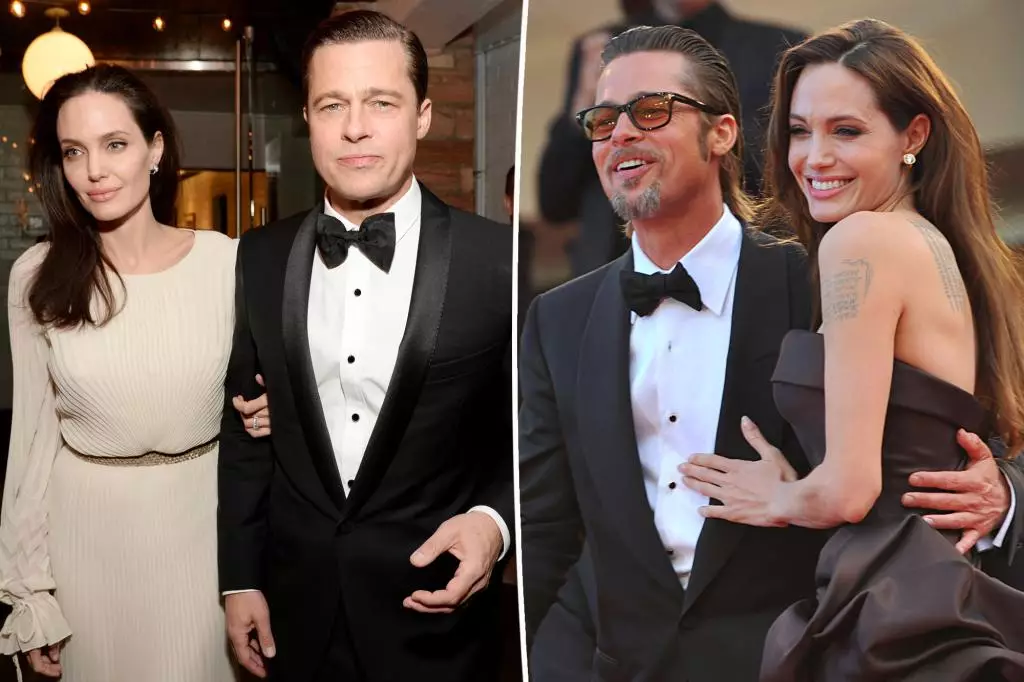In the high-octane world of Hollywood, personal disputes often spill into the public eye, transforming private matters into larger spectacle-driven dramas. The recent legal maneuverings of Brad Pitt and Angelina Jolie over their troubled winery stakes are a testament to how celebrity conflicts have transcended personal boundaries, becoming complex legal battles that expose industry power dynamics. Pitt’s aggressive move to probe Jolie’s private messages signals an intent to unearth secrets that may influence public perception and the outcome of their ongoing dispute. Such legal tactics are not just about facts; they are about wielding influence and control in the court of public opinion and legal authority.
This case reveals that behind the glitz and glamour, Hollywood personalities are enmeshed in power plays that mirror larger corporate conflicts. Pitt’s demand for access to Jolie’s communications reflects a desire to gain leverage, possibly to bolster claims or discredit his former wife. It’s a reflection of how celebrity disputes often extend beyond personal grievances, morphing into battles involving business interests, legal strategies, and personal vindication.
The International Dimension: Law, Power, and Hollywood
One particularly compelling element of this case is the involvement of international jurisdiction. Pitt’s efforts to subpoena Alexei Oliynik, associated with the Swiss-based Stoli Group, highlight a broader struggle involving diplomacy, legal jurisdiction, and corporate influence. Oliynik’s resistance—citing Switzerland’s laws that shield foreign nationals from traveling for depositions—underscores how multinational corporations leverage legal shields to protect their interests. Pitt’s legal team counters this, arguing that the case involves an element of remote deposition that should bypass traditional restrictions.
This facet of the case exposes a critical flaw in globalized legal systems: powerful entities can manipulate jurisdictional nuances to delay or obstruct proceedings, thereby gaining an advantage in the court of law. It also signals that celebrity legal disputes are often intertwined with corporate interests, especially when high-value assets like wineries are on the line. Pitt’s assertions suggest that this isn’t merely about the winery but also about exposing the influence of corporate powers in personal disputes.
The Power Dynamics: Celebrities as Business Titans
The controversy surrounding the Château Miraval estate and the involvement of Stoli Group go beyond mere property claims; it reflects how celebrities have evolved into business magnates who command significant economic influence. Jolie’s decision to sell her stake seemingly as a retaliatory act introduces questions about ownership, control, and retaliation. Pitt’s legal challenge to her sale points to the persistent tug-of-war over assets that were once jointly cherished, illustrating that even personal relationships are now intertwined with business strategies.
Furthermore, the narrative hints at a larger betrayal—Pitt suspects Oliynik and the Stoli Group of acting under the direction of powerful executives to influence the outcome of the dispute. Such allegations underline how corporate interests often manipulate legal battles for strategic advantage, blurring the lines between personal revenge and corporate maneuvering. The case exemplifies how Hollywood’s glamor can conceal ruthless business practices, where legal leverage and corporate influence often overshadow genuine reconciliation.
The Human Dimension: Regret, Damage, and the Costs of War
Amidst legal complexities, the personal toll of this prolonged dispute is evident. Pitt’s expressed regrets and the acknowledgment that the case has left lasting scars highlight how these legal battles do not just impact assets; they profoundly affect the emotional and familial fabric of the individuals involved. His regret about the estrangement from his children and the inability to repair the fractured relationships reveal the heartbreaking human toll behind the courtroom drama.
This scenario underscores that celebrity disputes are not just about winning legal titles but also about healing wounds and restoring fractured relationships. The fact that Pitt laments the lost opportunity for reconciliation indicates that behind the legal veneer, there remains a desire for genuine resolution—though the ongoing battles suggest that ego and power often overshadow such hopes.
The Broader Reflection: Power, Celebrity, and the Court of Public Opinion
Ultimately, this case is a microcosm of how celebrity disputes now serve as battlegrounds where legal, corporate, and personal interests intersect. It reveals that behind the curated glamour lies a ruthless quest for influence and control—where leverage in court can translate into long-term dominance in the court of public opinion.
Celebrities are no longer just the faces on screens but are embedded within vast networks of corporate interests, legal strategies, and public narratives. Their battles, often fought in courtrooms, hint at larger societal themes: the privatization of power, the manipulation of legal systems, and the relentless pursuit of influence. The Pitt-Jolie saga is a stark reminder that in Hollywood’s high-stakes game, reputation, prestige, and assets are commodities that often come with a heavy cost—one that extends far beyond the courtroom.

